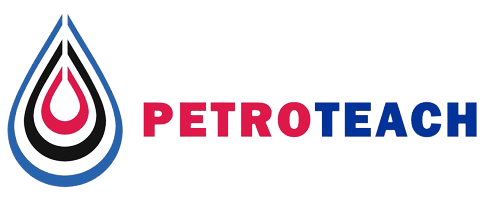RES 424
SAGD and Solvent-SAGD Design and Analysis in Thermal Recovery
PetroTeachh offers a comprehensive course on understanding and design of SAGD and Solvent-SAGD in thermal applications.


PetroTeachh offers a comprehensive course on understanding and design of SAGD and Solvent-SAGD in thermal applications.

| Code | Date | Location | price (€)* |
|---|---|---|---|
| RES 424 | 12 - 13 Nov 2025 | Kuala Lumpur | 1990 |
| RES 424 | 18 - 19 Mar 2025 | Online | 850 |
| RES 424 | 2 - 3 May 2025 | Online | 850 |
| RES 424 | 11 - 12 Jun 2025 | Amsterdam | 1990 |
* Prices are subject to VAT and local terms. Ph.D. students, groups (≥ 3 persons) and early bird registrants (8 weeks in advance) are entitled to a DISCOUNT!
PetroTeachh offers a comprehensive course on understanding and design of SAGD and Solvent-SAGD in thermal applications. There is ample opportunity to work problems in class. By the end of this course, participants will be able to analysis and interpret evaluations done by others on SAGD and solvent-SAGD.
This is a 2-day course designed to provide participants with a complete understanding and design of steam assisted gravity drainage (SAGD) oil production and SOR evaluation and also new technologies of Solvent in thermal applications.
In 1st-day of this course is an introduction to Butler assumptions and mathematical principles and its limitations and also briefly discusses other studies which address steam assisted gravity drainage (SAGD) oil production and SOR evaluation. In this course there will be examples using Excel spreadsheets.
In 2nd-day of this course the thermodynamics and pressure-volume-temperature (PVT) and tuning parameters to fit laboratory data is described. Different analytical models for oil rate predictions such as Butler-Mokrys (1989) and Dunn-Nenniger-Rajan (1989) models will be discussed.
o SAGD Heat Transfer
o Different temperature models and their consideration with respect to conduction and convection.
o Butler Temperature Model
o Sharma Gates Convection Model
o Irani and Ghannadi Convection Model
o Butler Production Model
o Derivation of oil production using Butler
o Assumptions in “Original Butler model”
o TANDRAIN and LINDRAIN models
o Butler Plateau Model
o Butler Ramp-up Model
o Discussion on Steam Interface Velocity in “Original Butler model”, TANDRAIN and LINDRAIN models, and its comparison to field data.
o m exponent factor discussion
o SOR Discussion: Heat conservation concept and the basis of different SOR analytical models will be presented
o Reis SOR Model
o Edmunds and Peterson (2007)
o Miura and Wang (2012) Model
o Introduction to thermodynamics and pressure-volume-temperature (PVT)
o Clausius-Clapeyron Equation, Dalton’s law, Henry’s Law and Raoult’s law
o Numerical solution to practical examples such as temperature reduction in chamber
due to NCG injection, and temperature reduction at Azeotropic point in ES-SAGD process.
o Pure Solvent Modelling: VAPEX and Nsolv
o Butler-Mokrys and Dunn-Nenniger-Rajan models and comparison to physical models
o onset of asphaltene precipitation
o Steam-Solvent Numerical and Analytical Modelling
o Gupta-Gittins and Rabiei–Harding–Abedi models
o Production Challenges in Solvent Operation
o Liquid-pool model and concept
o Steam trap control for Nsolv

Mazda Irani is the director of Ashaw Energy Ltd. He is currently engaged in the designing and optimization of Steam Assisted Gravity Drainage (SAGD) and proper near wellbore modeling for the SAGD wells. One of his main tasks is to help and develop a software that can help operators run their SAGD wells at optimum subcool, manage the hot spots, and modify their FCD design in heterogeneous reservoirs. He published a trilogy paper named “On Subcool Control in Steam-Assisted-Gravity-Drainage Producers”. Dr. Irani was previously employed in technical and supervisory roles with Cenovus Energy, Suncor Energy, RPS Energy, and C-FER Technologies. He has published and presented more than 40 technical papers on different aspects of SAGD operation. Dr. Irani holds a PhD in petroleum engineering (U of C 2017) and geomechanics (U of A 2012) and three Masters degrees in petroleum engineering, geotechnical engineering, and structural engineering.
Reservoir and production engineers, reservoir simulation engineers, technology development leaders that are involved in forecasting and evaluation of new SAGD applications and solvent applications for thermal recovery development and design.
Intermediate to Advance
After completing this course, participants will learn:
o Understanding heat transfer in SAGD operation.
o Understanding limitations of Butler and other analytical models.
o Assumptions made in SAGD analytical models.
o Optimizations made in forecasting models.
o Become familiar with fundamentals of phase behavior modeling
o Be able to carry out simple phase-equilibria calculations
o Assumptions made in solvent analytical models for oil rate prediction
o Understanding benefits and limitations of pure-solvent and steam-solvent processes
Registration is now OPEN!
* Prices are subject to VAT and local terms. Ph.D. students, groups (≥ 3 persons) and early bird registrants (8 weeks in advance) are entitled to a DISCOUNT!
For more details and registration please send email to: register@petro-teach.com
Would you like a PetroTeach training course delivered at a time or location to suit you?
click for request in house